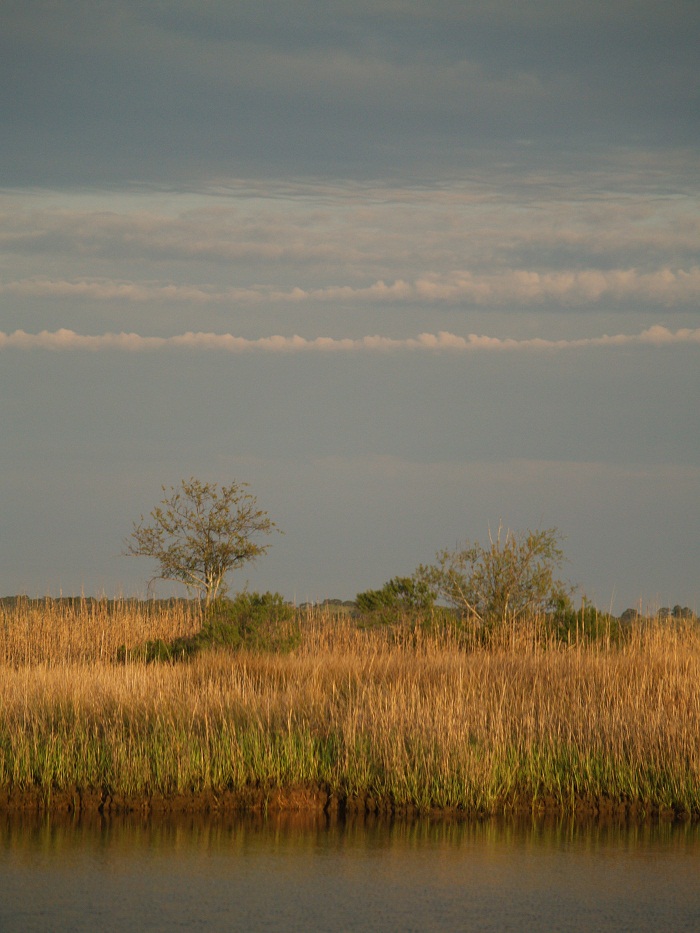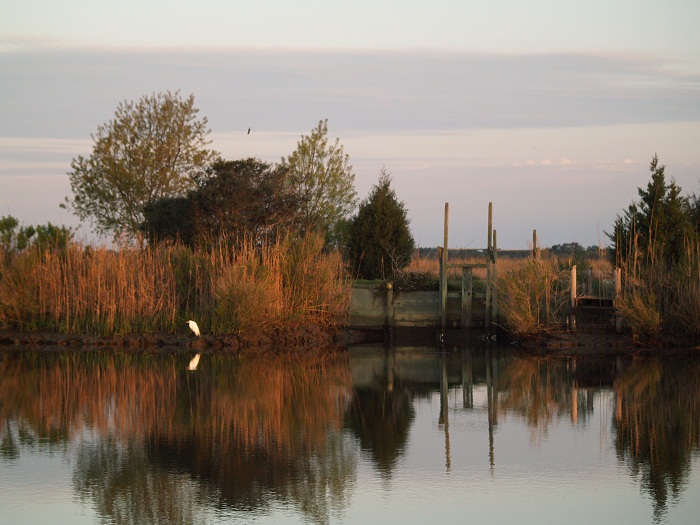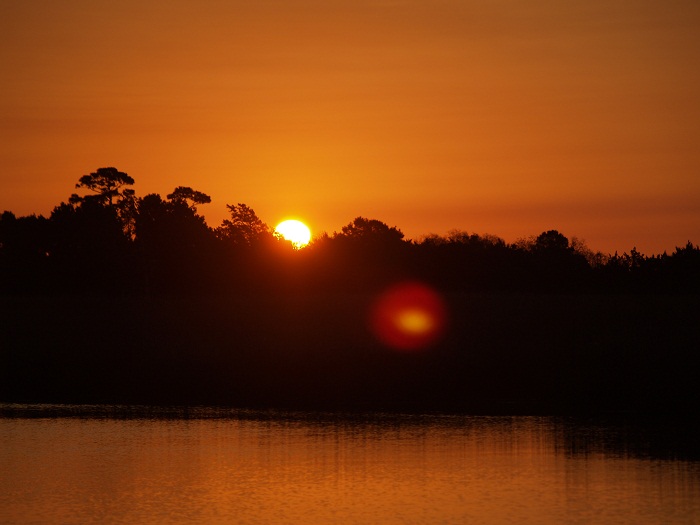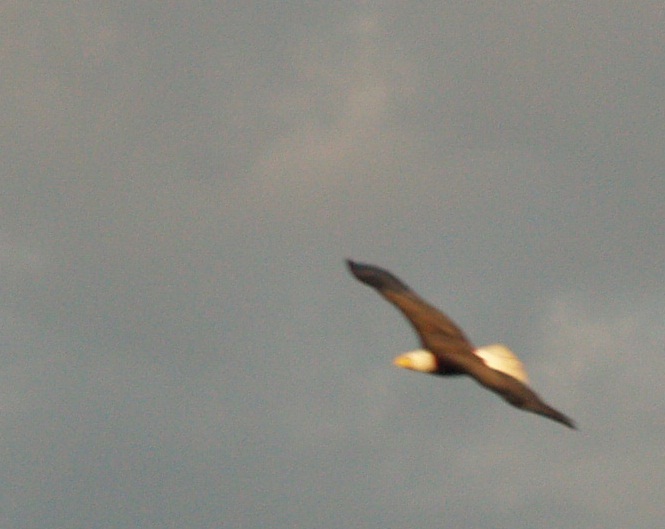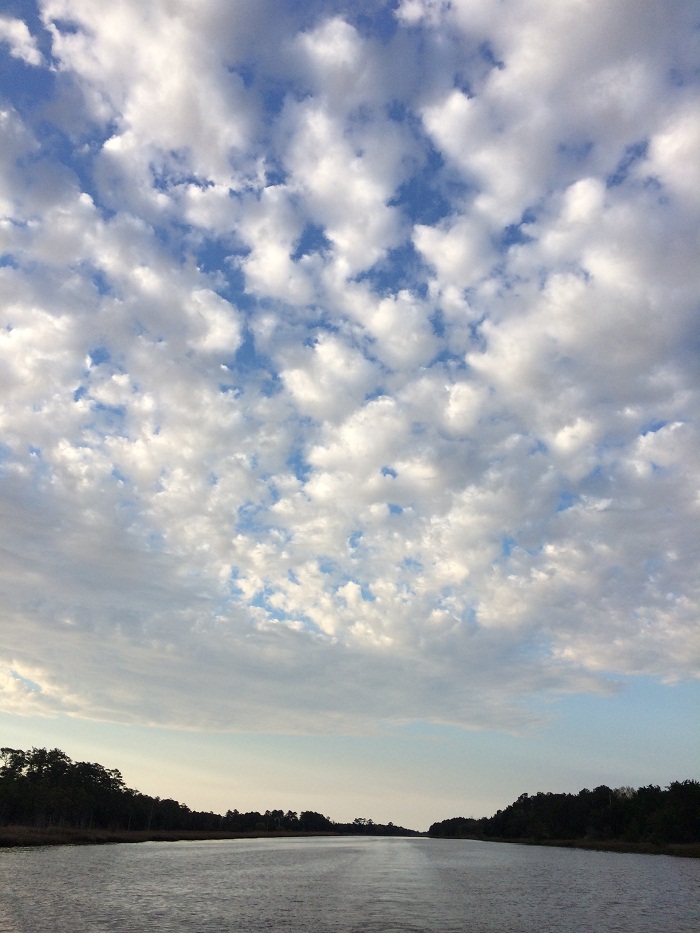Last night we anchored alone in a quiet little estuary off the ICW, less than 10 miles south of Georgetown, SC. We didn’t make it to Georgetown because of waiting for mid-tide in some particularly shallow areas of shoaling. The shoaling seems worse than it did two years ago, and locals in Georgia have mentioned that there just isn’t money in the budget for keeping the waterway dredged as often as in the past.
Yesterday evening was beautifully quiet. After a long day of listening to the engine run it was so peaceful to be alone in a pretty spot. There was no wind, which is rather rare, so when the birds weren’t singing it was utterly quiet. Here are the marshes in the last of of the light.
I thought it was salt grass on all sides of us, but the guide book says they are rice paddies. Hmmm…. there were some flood gate type constructions here and there, so maybe they were rice paddies. Notice the egret in the foreground.
The sun set to a chorus of trilling blackbirds, and led to a cold but tranquil night–clear skies with a gibbous moon and lots of stars.
This morning the wind kicked up and dark clouds moved quickly over us bringing rain. As we left the anchorage we saw a bald eagle in a lone tree in the rice paddy/marsh. He took flight as we passed him.
Before the rain found us there were some stunning moments along the canal as we headed for Georgetown.
By mid morning we were anchored just off the public docks in pretty Georgetown–although it’s too bad about the noise from the steel plant and the railroad tracks, and the smell from the papermill, all at the head of the harbor! At the local museum we were told that those are rice paddies where we anchored, and the birds were most likely a type of bobolink that the locals call ‘rice birds.’ Rice birds have been a problem since rice was first grown in these parts. They can eat an entire crop of rice, and no one has figured out a way to deter them. So the current rice growing endeavor has failed. I don’t quite understand this problem since there has always been plenty of Carolina rice as long as I can remember!

